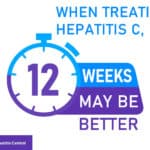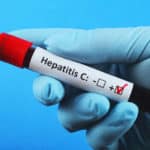29 Potentially Toxic Drugs for Hepatitis C
The faith we have in Western medicine lead some to blindly rely on their physicians. This relinquishing of responsibility includes taking whatever drugs are suggested or prescribed by a doctor. Because the potential for liver toxicity is elevated with chronic Hepatitis C, those with this infection need to be especially proactive when managing their medications.
One of the liver’s primary responsibilities is filtering out toxic substances from the blood. When people take pharmaceutical drugs, the liver’s filtration capacity is essential for preventing dangerous chemicals from overloading the circulatory system. Normally, this process takes place efficiently and without causing any harm. Unfortunately, individuals with chronic Hepatitis C are likely to have a liver with decreased functionality and, thus, are more vulnerable to drug toxicity. This is because an already damaged and weakened liver must work much harder than a healthy liver to remove toxins from the body.
When new medications are developed, they are extensively tested to ensure that the liver is not damaged. There are over 1,000 known drugs and chemicals capable of causing injury to the liver (hepatotoxic). Medications that are known to be dangerous to people with liver disease usually carry a warning regarding its use in people with liver problems. Despite all of these efforts, medications sometimes harm the liver anyway. That is primarily because liver-toxic substances can be identified in the laboratory, but liver-hypersensitivity problems are not always predictable.
A great deal more research is needed to identify all of the medications that are possibly toxic to those with Hepatitis C, but the following list of suspected or confirmed liver-toxic drugs can help those with Hepatitis C better recognize potential hazards. As compiled by Misha Cohen and Robert Gish in The Hepatitis C Help Book, the following drugs should be accompanied by regular lab tests to check liver function changes in those with Hepatitis C:
- Acetaminophen (primarily of concern when taken regularly)
- Alpha-methyldopa
- Amiodarone
- Augmentin
- Azathioprine
- Carbamazapine
- Chlorozoxazone
- Dantrolene
- Diclofenac
- Fluconazole/Ketoconazole
- Flutamide
- Hydralazine
- Ibuprofen
- Isoniazid
- Long-acting nicotinic acid
- Leukotriene synthase inhibitors
- Methotrexate
- Nitrofurantoin
- Perihexilene maleate
- Phenylbutazone
- Phenytoin
- Quinidine
- Rifampin
- Statins – Pravastatin/Fluvastatin/Simivastatin/Lovastatin
- Sulfa medications
- Tacrine
- Ticlopidine
- Tolcapone
- Troglitzone
Because each generic drug can have several brand names, only the generic name was included in this list. Thus, it is important to make sure you know the generic and brand names of any drugs you take. This list appears to be lengthy, but it is far from complete. Anytime someone with Hepatitis C takes a medication, even when prescribed by a healthcare provider, they should keep an eye out for negative reactions that could indicate hepatotoxicity. Symptoms to look for, include:
- a new skin rash
- nausea
- bloating
- fatigue
- aching around liver
- yellowing of the skin or eyes
- pale feces
Those with Hepatitis C should never assume that any given medication is completely safe. Discuss any drugs you take – prescribed or over-the-counter – with a knowledgeable healthcare provider. Besides working with a trusted physician to manage medications, it is important to remember that susceptibility to hepatotoxicity is raised with Hepatitis C and that hepatotoxic responses are not always predictable. Thus, individuals with Hepatitis C must communicate openly with their doctor about all medications taken and be proactive in gauging changes in their health with every new drug they take.
References:
http://www.acg.gi.org/patients/gihealth/mlp.asp, Medications and the Liver, Jorge L. Herrera, FACG, Retrieved September 4, 2010, American College of Gastroenterology, 2010.
http://www.hepcchallenge.org/choices/pdf/Appendix_IV_OL.pdf, Appendix IV: Liver-Toxic Medications and Herbs, The Hepatitis C Help Book – Revised Edition, Misha Cohen, Robert Gish, St. Martin’s Griffin, 2007, pp 403-4; Caring Ambassador’s Program, Inc., 2008.
http://www.liverdisease.com/medications_hepatitis.html, Medications and the Liver/Hepatitis, Retrieved September 4, 2010, Melissa Palmer, MD, 2010.
http://www.medicinenet.com/drug_induced_liver_disease/page8.htm#tocp, Drug Induced Liver Disease, Retrieved September 4, 2010, MedicineNet, Inc., 2010.
http://www.webmd.com/hepatitis/hepc-guide/managing-hepatitis-c, Managing Hepatitis C, Retrieved September 4, 2010, WebMD, LLC, 2010.







